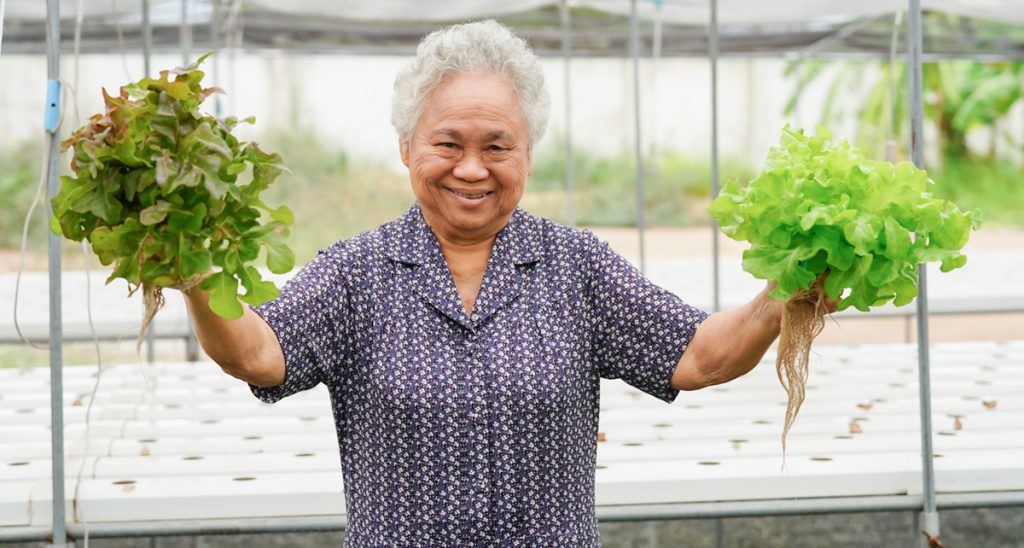Micro, Small, and Medium Enterprises (MSMEs) and agriculture remain as the backbone of the country even during the COVID-19 pandemic.
“They play a significant role in economic development with MSMEs making up 99.52% of businesses in the country while the agriculture sector secures the country’s food production and supply.”
However, the pandemic heavily impacted the agriculture and business sector. This resulted in MSMEs closing down while farmers are having trouble delivering their harvests, resulting in loss of income.
But how much has the pandemic affected these sectors? And what can we do to support them?
The Impact of COVID-19 on MSMEs
Photo courtesy of We The Pvblic
The role of MSMEs contributes significantly in Philippine employment. According to the latest List of Establishments from the Philippine Statistics Authority (PSA), there are 998,348 MSMEs in the country with micro and small enterprises placing 2nd and 3rd in employing labor force nationwide.
The Employment Scale of MSMEs in the Philippines
However, MSMEs are affected more heavily than other businesses. The imposed community quarantine resulted in lack of income, becoming unable to support their business and employees.
“Trade Secretary Ramon Lopez announced that 52.66% of MSMEs closed down during the online meeting of the House Defeat COVID-19 committee’s social amelioration cluster last May 1.”
This means that more than 525,000 MSMEs are affected, resulting in millions of people left unemployed and no source of income.
Helping MSMEs in the Philippines
Photo courtesy of ABS-CBN posted on Panay News Website
To help cushion the impact of the 2019 coronavirus, the government has launched several programs and initiatives to help MSMEs recover from the pandemic.
One such program is the Enterprise Rehabilitation Financing Facility under the Pondo sa Pagbabago at Pag-asenso (COVID-19 P3-ERF) provided by the Small Business Corporation of the Department of Trade and Industry (DTI).
It’s a P1-billion loan facility where micro-enterprises with an asset size of not more than P3 million may borrow P10,000 up to P200,000 thousand while small enterprises with an asset size of not more than P10 million may borrow a higher amount not exceeding P500,000.
DTI P3-ERF P1-billion Loan Facility
There’s also the Small Business Wage Subsidy dedicated to affected employees of small businesses. They can receive a wage subsidy worth P5,000 to P8,000 for 2 months so that these businesses can retain their employees during the lockdown period.
The Importance of Agriculture During the Pandemic
Photo courtesy of AvianQuest posted on Panay News
The pandemic urged countries to close their borders, halting the export of goods. This initiated the need to improve agricultural production to ensure food supply.
The importance of farmers is highlighted more clearly now that the Philippines can no longer rely on imports in supplying food to millions of people.
The Department of Agriculture (DA) reported that farmers sold an estimated worth of P1.6 billion of agricultural products to 245 local government units (LGUs) for their food relief packs, a healthier alternative from canned goods.
Agricultural produce for LGU food packs
But farmers are also heavily affected by the pandemic.
Many farmers have experienced difficulties in taking their produce to the market due to the temporary suspension of public transportation, closure of some trading posts, and the tightening of borders following the transportation guidelines of the community quarantine.
Improving Philippine Agriculture
Photo courtesy of Chris Stowers/Panos of SciDevNet
To solve such problems, the government has taken the necessary measures to allow unrestricted movement of agricultural produce and has dedicated a budget to boost the agriculture sector in light of the current situation.
The Inter-Agency Task Force on Emerging Infectious Diseases (IATF-EID) approved a P31-billion supplemental budget to fund the DA’s “Plant, Plant, Plant” Program, also called ‘Ahon Lahat, Pagkaing Sapat (ALPAS) Kontra sa COVID-19,’ to address the country’s food sufficiency needs.
Breakdown of Department of Agriculture’s P31-billion Supplemental Budget
Aside from that, the government has also provided financial help to farmers in the form of cash aid and loan programs.
They launched the Rice Farmer Financial Assistance (RFFA) and the Financial Subsidy to Rice Farmers (FSRF) where small farmers can claim one-time cash assistance of P5,000 from government-owned banks and authorized financial institutions such as rural banks and other organizations.
List of Authorized Organizations to distribute RFFA and FSRF
As an agricultural country, the Philippines is in a good position to ensure food security even during the pandemic. Filipino farmers are working to ensure that Filipinos can have access to fresh produce.
But how can the government distribute their financial help programs, especially to those in far-flung areas?
Utilizing Rural Banks to Support Farmers and SMEs
Photo courtesy of TongStocker via Freepik
Rural banks, along with cooperatives, microfinance institutions, non-governmental organizations, and payment collection companies, signed a memorandum of understanding called “Damayang Sambayanihan: Hatid-Ayuda sa Kababayan.”
This MOU serves as another way to distribute government subsidies faster. According to RBAP President Roberto Abello, they are ready to utilize their massive rural bank network of over 2,700 branches nationwide to handle the countryside pump priming needed to address this global pandemic and local quarantine.
And since rural banks are scattered throughout the country, they make it easier for Filipinos to receive the much needed cash support. Farmers can easily claim the RFFA and FSRF from the nearest rural bank without having to travel far.
Aside from that, rural banks also provide agricultural and business loans, catering to the financial needs of Filipino farmers and MSMEs.
Digital Banking for Economic Development
Photo courtesy via Freepik
The COVID-19 pandemic has shown the need to go digital, particularly in rural communities. Banks continue to play an important role even with the community quarantine in place, which is why the need to digitize the rural banking industry is seen more clearly than ever.
With their expansive reach in the countryside, Filipinos, farmers, and MSMEs can easily access financial services. Through digital banking, they can get access to the necessary funds that they need to support and grow their livelihood, encouraging economic development in rural areas.
